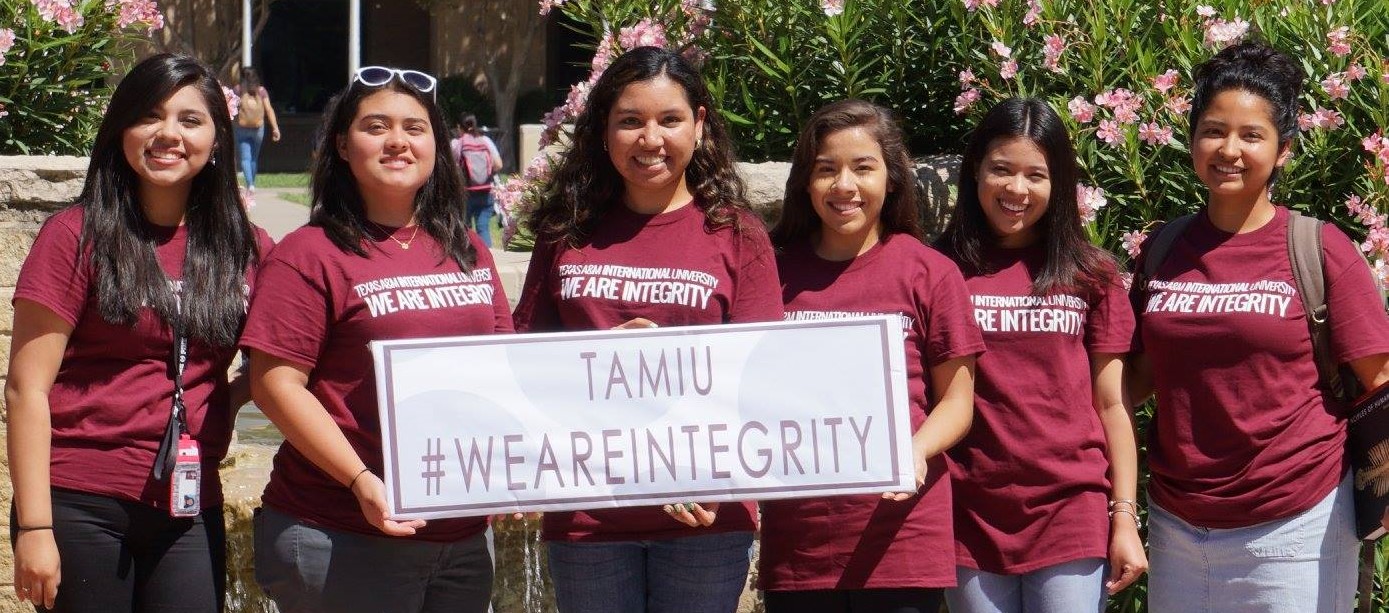
Together we R.I.S.E.
Academic Integrity (AI) refers to a set of shared values, principles, behaviors, and skills that lie at the heart of learning and scholarship. Texas A&M International University (TAMIU) is commitment to academic excellence, reflecting its core values of respect, integrity, service and excellence.
TAMIU students are expected to maintain the highest level of integrity throughout their academic and professional pursuit. It is the responsibility of TAMIU students to report acts of academic dishonesty. Failure to report undermines the learning process and compromises the quality and reputation of a TAMIU degree.
According to the Center for Academic Integrity (CAI), academic integrity is defined “as a commitment, even in the face of adversity, to five fundamental values: honesty, trust, fairness, respect, and responsibility.” To report acts that violate the academic integrity rule please complete the Academic Misconduct Reporting Form.
The Office of Student Conduct and Community Engagement is prepared to support and help students understand the value of academic integrity and to avoid academic misconduct. All members of the TAMIU community are responsible for knowing and practicing university-wide rules, policies and procedures regarding academic integrity, as well as any procedure specific to their school, program, and course.
To learn more about the Academic Misconduct Process, view the Tips for Students.
The Honor Council is a select group of students that hear appeals due to alleged academic misconduct violations as pertains to the Student Conduct Code in the Student Handbook. Members are directly responsible for deciding if a violation occurred and, if necessary, recommend sanctions to appropriate parties.
To learn more about the Honor Council responsibilities, terms of positions, qualifications, application process and meet current Honor Council representatives, please visit the Honor Council webpage.
| Imperative 1: Students | 1.2 Increase enrollment, retention, and graduation rates. |
| 1.3 Prepare students for successful leadership roles. | |
| 1.4 Engage students in activities that enrich their lives. | |
| 1.5 Provide programs and services that support established student outcomes. | |
| Undergraduate Learning Principle 1: Respective and Expressive Communication Skills | |
| Undergraduate Learning Principle 3: Integration and Application of Knowledge | |